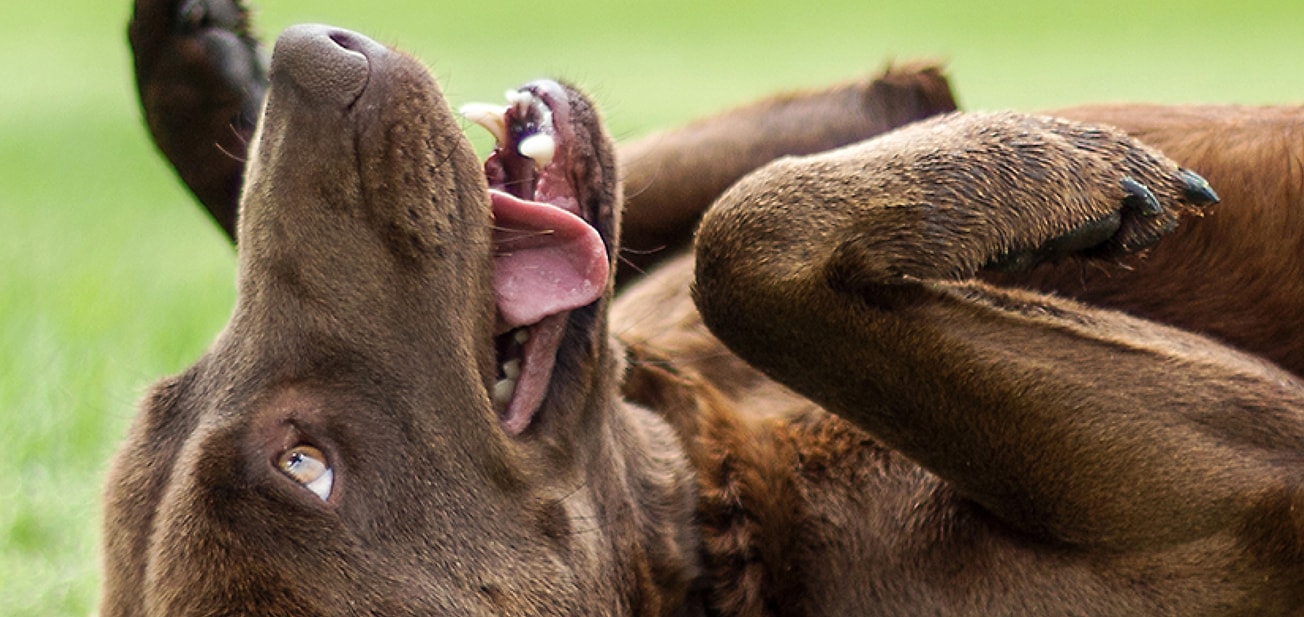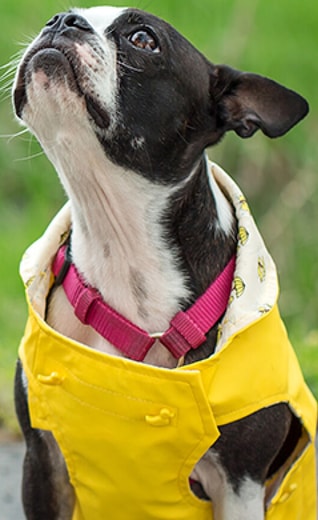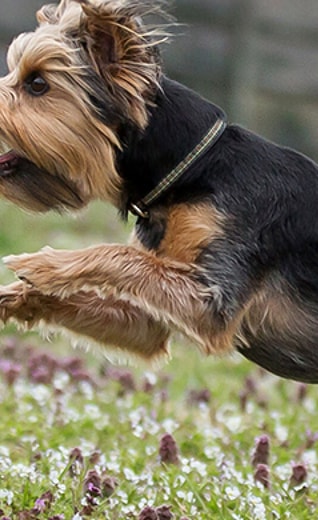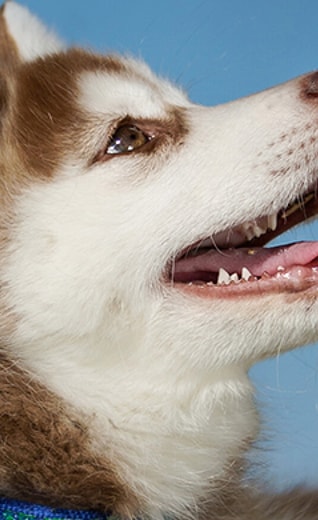
Things to consider
Do you really, really want a dog?
Do you want a dog? Do you really want a dog? Do you want to wake up early on a cozy Sunday morning, and take him out in the rain? After all, he needs his exercise. Are you ready to spend as much time as you can with him?
Are you prepared for the lifestyle impact, the financial impact, and grooming considerations? Are you up for cleaning up various messes? Getting up in the middle of the night with a sick dog?
Whether it's a puppy, adult, or senior dog you're considering adopting, the newness soon wears off, and then you're left with a loving companion for, hopefully, many years to come.
PEDIGREE® Brand supports shelter dog adoption
The overwhelming majority of dogs adopted from shelters aren't puppies. In fact, most are 2-3 years and older. So in this section we'll concentrate primarily on adult to older dogs, and their particular needs.
However, if you're looking to adopt a puppy from a shelter, much of this information will still be beneficial.
Anywhere you go, you'll find lots of shelter dogs in need of a good home. There are other benefits to adopting from a shelter. With a shelter adoption, you're saving more than one life - you're making room for another dog, or allowing another dog to be kept at a shelter for a longer period of time, giving them a better chance of being adopted, too.
Another rewarding aspect of shelter adoption is the special bond many owners develop with their rescued dog. Opening up your heart and home to an "orphan" usually results in an extremely strong relationship. That can mean a loyal, affectionate, and attentive dog for life.
Read on to check that your decision to adopt is a solid one.
Why do you want a dog?
In deciding what type of dog you should get, consider what you're looking for in your future pet. Is he going to be a fun playmate for the children, or is his main job going to be to accompany an older person on quiet walks? Do you want him to go jogging with you, or is he going to be guarding the house? Loving him, and living with him should be rewarding for you and your newly adopted dog.
What kind of dog do you want?
So what kind of dog do you want? You can definitely still consider particular breeds of dogs when you're thinking of adopting from a shelter. Many shelter dogs are not purebred, but mutts. But the shelter workers can take very educated guesses at their lineage.
Let's say you've always wanted a Lab. It's a good bet you'll find an adorable Lab-Poodle cross who'll display the physical and temperamental characteristics of both breeds. Or you might be looking for a "working" dog, but not in the market for a "hound" dog. The biggest trick is to be filled to the brim with knowledge before you hit the shelters - and before you fall in love with a gorgeous sweetie who just isn't right for you.
Time of your life
For a dog waiting for his "forever" home, it's always a good time to be adopted. But don't let him down by bringing him home, and then deciding that it's simply not the right time for you. Dogs take lots of care and attention - and that means time - especially when they first come home.
Is this the right time in your life to take on this huge commitment? Does your lifestyle allow for the flexibility it takes to acclimate your new dog into your life? Are your current commitments overwhelming, or very manageable?
An ongoing financial commitment
Are you financially in a place where you can afford the care and upkeep of a dog? Because it can really add up. Besides the cost of quality food, treats, and snacks, there are toys, doggie beds, and blankets; vet, training, and grooming costs; medical emergencies; and more.
Location, location, location
Do you live in a house or apartment? The city, the suburbs, or somewhere rural? Let us be the first to dispel the myth that you can't raise a large dog in an apartment. It's nonsense. It doesn't really matter how big or small your apartment (or even your house) is - what matters is that you give your new dog the daily exercise his particular breed requires to stay healthy and happy.
Almost every book on dog breeds will give an indication of exercise requirements. As long as you hit the pavement and the park enough, your big dog will likely be happy lounging around your home. In fact, many small breeds (for example, Jack Russell Terriers) require more activity than large breeds.
It's all about activity needs
As long as you take care of his exercise needs, the size of your home really doesn't matter - whether you're a city, suburb, or country-dweller. Of course, an off leash park in a city is always great no matter where you reside. Areas designated for off-leash dogs give your dog the chance to romp around as much as he likes, play with other dogs, and fetch toys like Frisbees, Kongs, and tennis balls. Of course, these parks are only for trained, socialized, friendly dogs.
Additionally, dogs don't need a yard to thrive. In fact, they may soon get bored hanging out in the backyard. Yards smell the same every day and there aren't any new and stimulating experiences. It's much more fun and interesting to dogs to go out for walks (especially if you change your routes), or to dog parks, with you. This way they'll meet other people and dogs, and be excited by new environments.
Male or female - does it matter?
Consider whether you want a male or female dog. Males tend to be more dominant and self-confident, whereas females may be more affectionate and loving. But, of course, these are very broad generalizations; every dog is different.







